22 Winter Self-Care Tips to Keep You Happy and Healthy

During the winter months, it’s easy to find yourself in a seasonal slump. The drop in temperature and lack of sunlight can do a number on our everyday lives, affecting everything from our sleeping patterns to our bodies. And with five percent of Americans experiencing seasonal affective disorder (SAD) each year, it can be hard to keep our mental, physical, and emotional health in check during the colder months. To help you take care of yourself this winter, we’ve talked to the professionals and gathered all the best self-care tips for the months when many of us need them the most.
1
Establish a regular routine.

It can be a challenge to have a routine during the winter. With days off from work or school, holiday parties, and the seasonal errands that need to get done, many people find themselves waking up and going to sleep at vastly different times every day. According to Megan Johnson, a licensed psychologist in California, this lack of routine can increase our anxiety and stress during the winter.
“Set a routine and establish a regular sleep-wake cycle,” Johnson recommends. “Our brains really like patterns, so living life according to a routine helps the brain to thrive. Keeping a regular sleep-wake cycle will help regulate your neurotransmitters and establish an effective sleep pattern to keep you at optimal alertness throughout the day.”
2
And make sure you switch out of your summer routines.

While we may be used to doing things a certain way during the summer, it’s important to change routines in the winter to specifically cater to our needs for the season, says psychiatrist Vinay Saranga, MD, founder of Saranga Comprehensive Psychiatry.
For instance, if you take the subway to work, Saranga recommends getting off one stop early and walking the rest of the way in the winter. This simple routine change can add more exercise and exposure to sunlight in your day, which is something you need more of in winter and less in the summer when you naturally get more sunlight and exercise.
3
Try to leave the house every day.

Whether it be for a five-minute walk around your neighborhood or a simple trip to the grocery store, Johnson recommends getting dressed and leaving your house at least once a day during the winter. As she explains, “our inner world often reflects our external experience,” so if you stay inside in pajamas all day, you’re more likely to feel worse than you would if you were to shower and spend some time outside.
4
And when you’re working, leave the office building when it’s light out.

Many people overwork themselves during the day in the winter so they can have time afterwards to spend with their loved ones. But if you’re cooped up in an office the entire day, you’re most likely not getting any sun as it typically sets before you leave work.
“One self-care tip for winter that I give my clients is to escape the office building for 20 or 30 minutes to take a walk during the afternoon hours when the sun is at its peak,” says Julie Gurner, a doctor of psychology. “Many traditionally use this as personal time during lunch, but it’s also a wonderful opportunity to weave this into a ‘walking meeting’ you might already have scheduled.”
5
Engage in mindfulness techniques.

Jenn Stolfa, a former therapist and founder of Take Them Outside, knows that getting outside during the colder months is often easier said than done.
“That doesn’t mean you can’t still take a few minutes to breathe and refocus on the outdoor world,” she says. “Take a few minutes to breathe deeply while you gaze out the window. Be mindful of the nature you see, and try focusing on details like drawing your attention to dancing leaves, the size and patterns of the snow fall, the texture of the clouds, or counting the various shades of colors you see. Giving yourself a moment to breathe deeply and be mindful of nature can reduce your stress levels, help you refocus, and remind you of your connections to the greater outdoor world.”
6
Add more movement to your routine.

Exercise releases endorphins, which can help to reduce everyday stress. So, according to psychologist Anna Yam, the best self-care tip for the winter is just to get yourself moving during the day.
“If the weather allows, take brisk walks,” Yam says. “If it’s grim outside, go to the gym, sign up for a dance class, buy a stationary bike or treadmill, or dance around in your living room. There are tons of great free and paid exercise videos available online, including yoga, aerobics, cycling, and weight training. Grab your sweats and sweat it out on your mat at home. Anything goes, as long as you’re moving.”
7
Expose yourself to more light.

With longer days of darkness in the winter, it can be hard to get the amount of sunlight we need during the day. After all, exposure to light causes positive changes in the brain’s chemical balance, Saranga says.
“The use of a light box, or a box with fluorescent lights installed in it, can be used to expose yourself to bright light early in the morning before sunrise, and later in the evening after sunset,” he recommends. “This can reduce depression symptoms significantly. Also keep your blinds and window shades open as much as possible, and cut any trees or bushes that obstruct the windows so more natural light fills the room.”
8
Stick to regular eating patterns.

Don’t get bogged down by holiday eating. While it’s no crime to indulge in delicious treats during the holiday season, don’t overdo it by relying on food delivery services or holiday leftovers. Nora Gerardi, a clinical psychologist from New York, recommends keeping up with regular grocery shopping as “irregular or unhealthy eating can contribute to negative moods.”
9
Eat foods with a purpose.

Not getting enough sunlight during the winter? Nutritionist Natalia Rose has a simple solution: Bring the outside in. She says, “bring the sun onto your plate by eating foods that store sunlight.” Her particular recommendation is dark leafy greens like kale, spinach, or collard greens.
10
Limit your alcohol intake.

While it can be easy to want to down a few cocktails when gathering with friends and family during the holidays, this can cause more problems for you in the winter. According to Saranga, since alcohol is a downer, it will only “exasperate your depression” if you’re already experiencing symptoms of SAD. Instead, he recommends upping your water intake during these months.
11
Get your flu shot.

When you’re not feeling your best mentally, it can be easy to let your phsyical health fall by the wayside. Teri Dreher, founder of NShore Patient Advocates, says staying on top of your flu shots should be at the top of your healthcare list during the winter. And the numbers back up this advice: The Centers for Disease Control and Prevention reported that the flu vaccine prevented nearly 7.1 million flu cases last year.
12
Use your sick days.
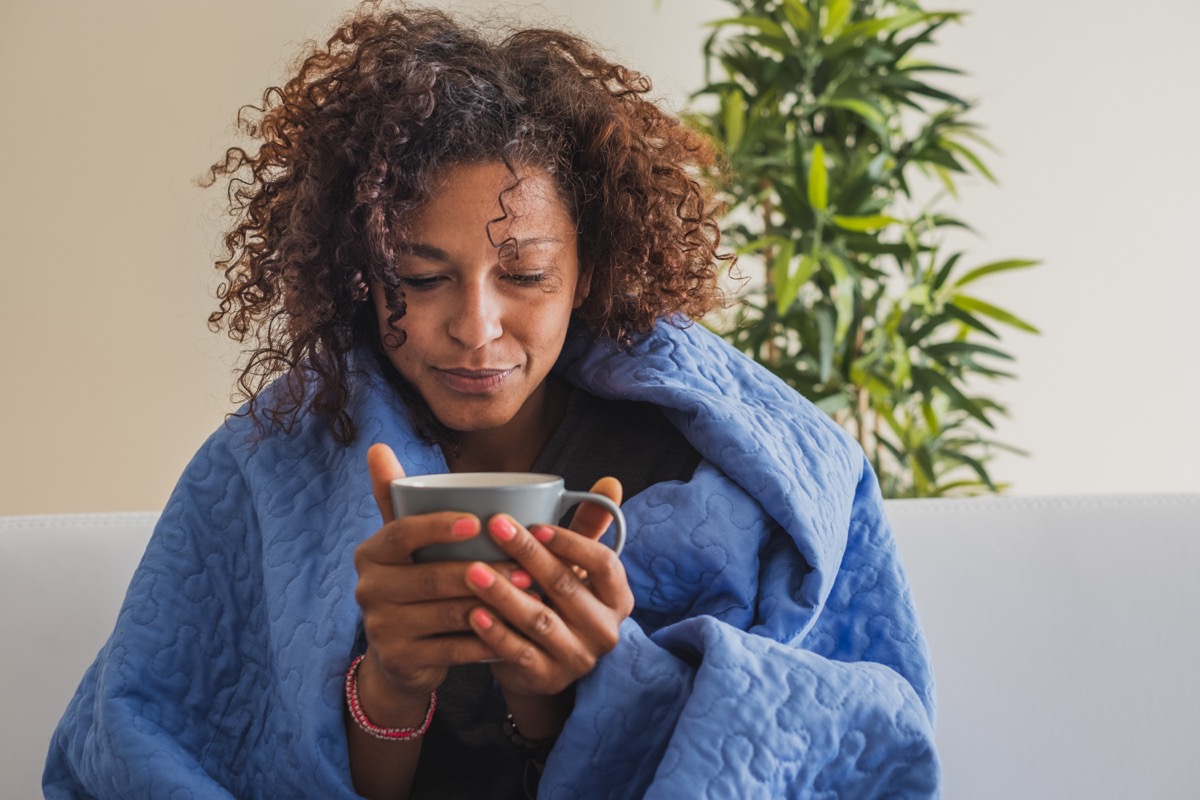
During the holiday season, many employees are reluctant to miss work, either because they need the money or because too many people have already taken time off. Per the advice of licensed therapist Katie Lear however, if you’re feeling sick during the holidays, take your sick days.
“So many people try to tough it out and keep showing up to work with colds, or worse, which only leads to more burnout as winter continues,” Lear says. “I see so many parents in my office around the holidays who are totally run down after ignoring their own health needs. Self-care isn’t all bubble baths and manicures: It’s also taking practical steps every day to keep yourself healthy.”
13
And go to the doctor.

On top of not wanting to take their sick days, many people let their health go uncared for entirely during the winter because they get too busy. Gerardi says one of the most important ways to feel better this winter is by not forgetting to take care of any physical health concerns. Regularly scheduling and attending doctor’s appointments, as well as keeping up with taking any prescriptions, is one of the most important self-care acts of the winter.
14
Try therapy.

While many people relish being with friends and family during the holidays, it may not be such an easy time for everyone. If you’re someone who finds the holidays to be a particularly stressful time, Georgia-based counselor Brent Sweitzer recommends seeking professional help.
“Early January is a tough time emotionally for a lot of people,” Sweitzer says. “They may have experienced stress over the holidays in family relationships, and the shorter days and cold weather can take on toll on moods. If you’ve never done therapy or counseling, it’s a great way to care for yourself and your relationship. If you’ve done it before but aren’t active in it now, winter is a great time to restart and proactively care for yourself.”
15
Stay connected to your support system.

It’s ironic that, in a season meant for friends and family, many people often find themselves too busy during winter to actually spend quality time with their loved ones. Rachel Elder, a mental health counselor in Washington, reminds people to stay connected to those they care about throughout the season.
“Schedule in time to chat on the phone, meet for coffee, or find a way to see those you feel support you,” she says. “Self-care does not always mean individual care. You can use your support system to help you get your needs met and hold you accountable to your health goals.”
16
Step away from the screen.
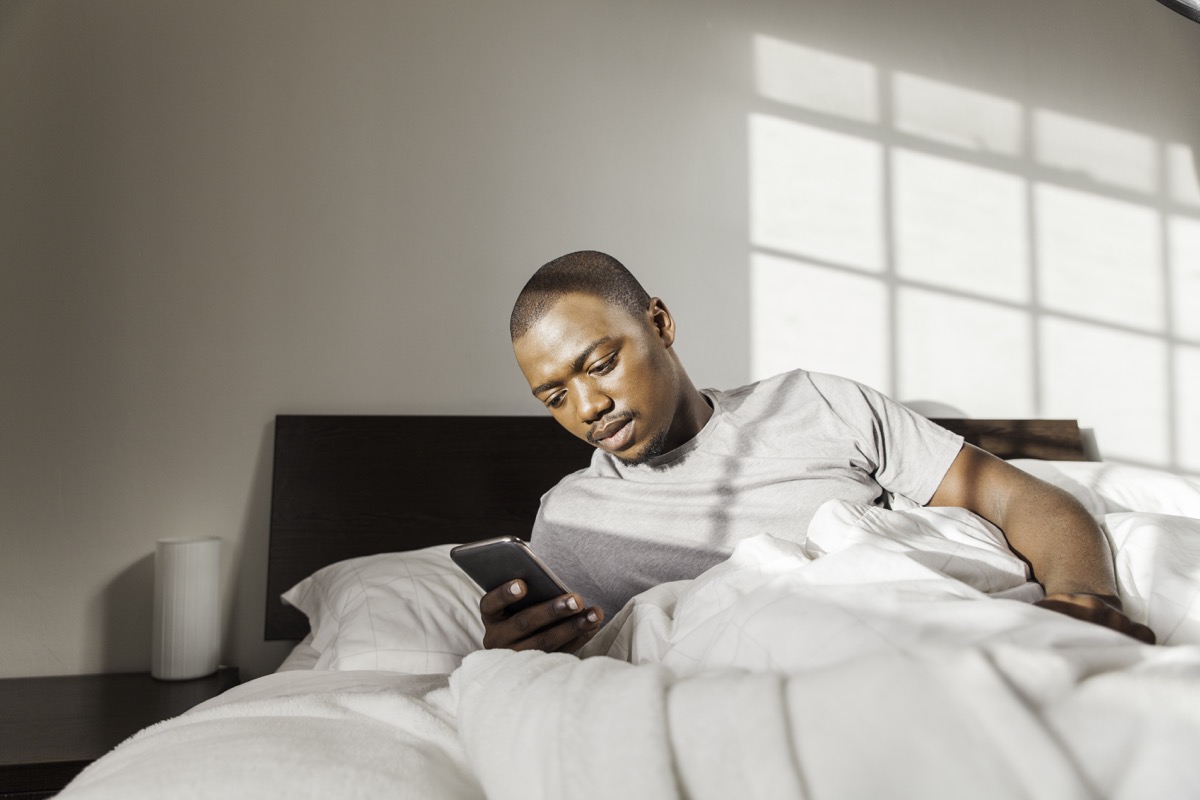
There might be nothing more relaxing than being curled up on the couch with your favorite Netflix show when it’s cold out. But too much screen time is never a good thing, especially when it’s keeping you indoors during the winter, says Gerardi. Taking time to actively limit your screen time—which includes phones, televisions, and video games—so you can unplug each day can make a world of difference.
17
Take a hot bath.
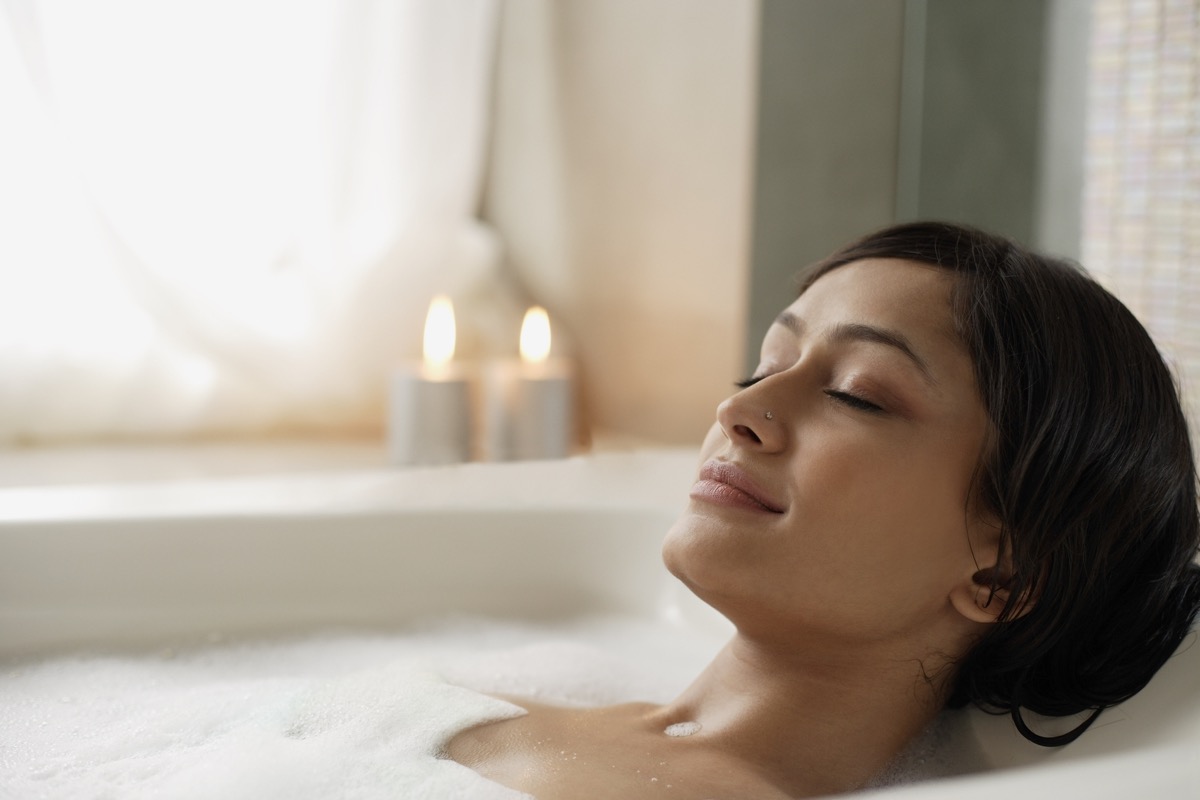
With holiday traffic jams, cold weather, and increased sedentary time, our muscles can tense up a lot over the winter months. An easy solution? Take a hot bath, recommends therapist Emma Donovan. She explains that even a small amount of time spent in a hot bath can help reduce stress and relieve muscle tension.
18
Or take a cold shower.

While it may seem counterintuitive to hop in a cold shower after being outside in the cold, it can actually be a rejuvenating experience during the winter. Sofia Din, a board-certified doctor from New York, recommends taking a 60-second cold shower every day to improve skin problems, circulation, and metabolic rates—and to strengthen your immune system.
19
Pump up the skincare creams.
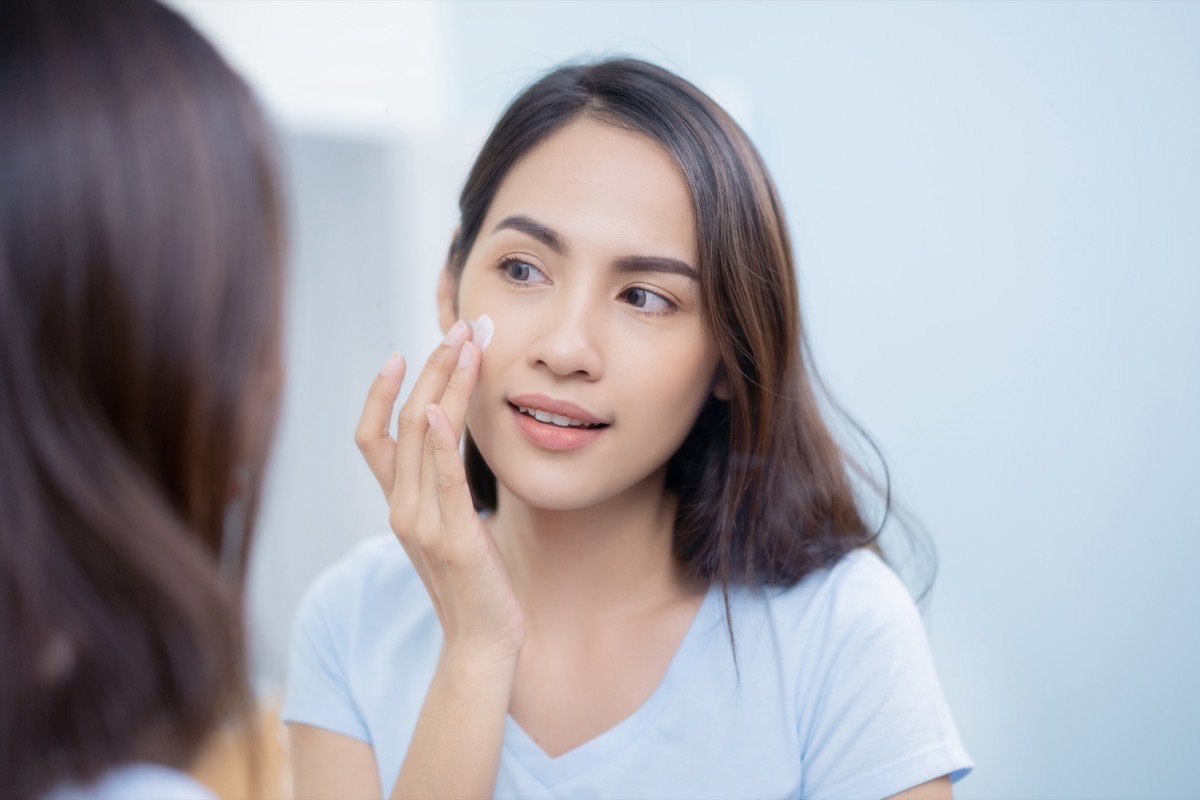
One of the easiest ways to take care of yourself in the winter is to take care of your skin, says Yocheved Golani, a life coach at E-Counseling. With dry, cracked skin becoming more prevalent in the winter, Golani recommends upping your moisturizer usage in the winter to combat this. And while you’re adding more moisture, don’t forget your sunscreen! UVA rays, which contribute to the development of skin cancer, are just as high during the winter—so sunscreen is still necessary.
20
Don’t buy gifts.

Many people equate the holiday season with buying gifts, but spending money you don’t have can cause extra stress during an already stressful season. Golani recommends not buying gifts this season, but instead giving people what they actually need.
“People don’t need things, they need relationships. Create some invitations to spend time together, volunteer to run errands for someone who would appreciate that, or repair something as a favor to someone who’d appreciate your time and effort,” Golani recommends. “Fulfill those obligations. Wallets will remain fuller, and so will the sense of mutual happiness.”
21
Make time for travel.
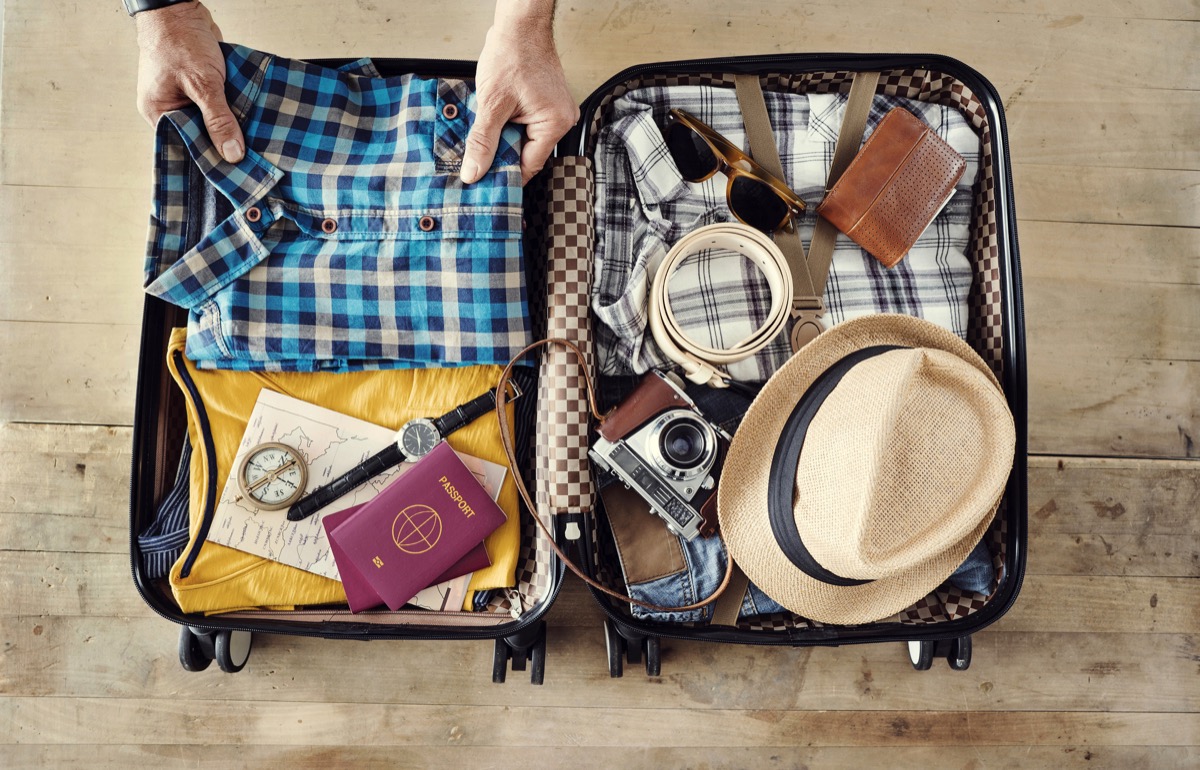
Winter ruts are hard to get out of, especially when your environment is not suited for a good experience. Joe Bunting, author of Crowdsourcing Paris, recommends making time for travel in the winter. If you live in a dark or gloomy region, travel somewhere sunnier. Making time to travel for yourself, and not just to visit family, can really help out during the colder season, says Bunting.
22
And take time out of every day to focus on yourself.

No matter how many self-care tips you read or take note of, if you’re not spending some time each day focusing on what self-care means to you, you’ll never find the relaxation you’re craving. Leslie Nifoussi, a mental health advocate, recommends spending at least 15 minutes every day to focus on yourself.
“What does that look like for you? Maybe it’s a hot bath with new bath salts, maybe it’s an at-home facial, or a facial far, far away from home,” she says. “Whatever it is for you—and be specific—put it in your calendar and when that reminder goes off, it’s ‘you’ time.”